(photo: Kiyun)
Dr. Chester Middlebrook Pierce, Emeritus Professor of Education and Psychiatry at Harvard Medical School put an academic name to racial stressors. He wrote about:
the effects of racism, first proposing the concept of racial microaggressions in 1970. Microaggression usually involves “demeaning implications and other subtle insults against minorities”. He described these subtle nonverbal exchanges as ‘put-downs’ of blacks by offenders and suggested they may also play a role in unfairness in the legal system as microaggressions can influence the decisions of juries.
Most of us are aware of racism. There are big, flaming in your face, cross-burning, spewing, blatantly racist moments in time that almost everyone you know can see, and react to. Those are easy-almost. But the things that wear at you, tear at you, day-in-day-out tend to be smaller, shrug-offable, till they pile up, drop by drop, irritation by irritation.
Those of us who are forced to bear with them and bear up under them rarely get a chance to be vindicated, and are often chastised for being “overly sensitive” or “imagining it all” when we finally speak up to put a stop to yet another “diss” or put-down.
For visual representations, take a look at 21 Racial Microaggressions You Hear On A Daily Basis
Photographer Kiyun asked her friends at Fordham University’s Lincoln Center campus to “write down an instance of racial microaggression they have faced.”
There are too many pictorial examples to post here so I’ve only sampled a few.
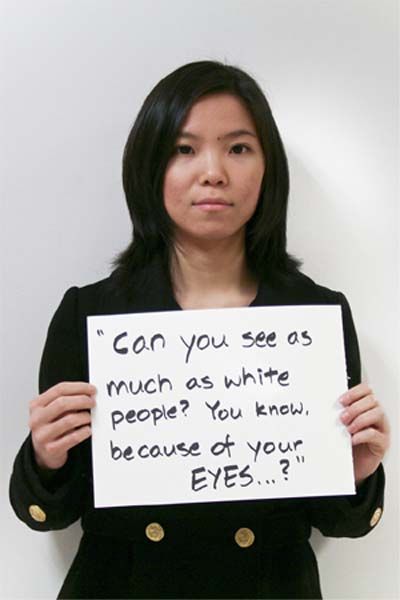
Dr. Derald Wing Sue, author of Racial Microaggressions in Everyday Life, explains what a microaggression is, how it manifests itself, how it impacts people, and what can be done to address it.
He illustrates microaggressions involving ethnicity, gender, and race. He explains that it is a world view of exclusion and inclusion.
Simply stated, microaggressions are brief exchanges that send denigrating messages to marginalized groups. Any group can be guilty of delivering microaggressions, but the most painful and harmful ones are likely to occur between those who hold power and those who are disempowered. Often times, microaggressions are unintended or come from a place from good intentions. For instance, a professor who says to a student who speaks with a foreign accent “I’m impressed you speak English so well” is guilty of a microaggression because although the professor means that statement as a compliment, the statement assumes that people with accents do not normally speak English well. A further example would be a female physician who is wearing a stethoscope being mistaken as a nurse, with the underlying assumption being that women in hospitals are more likely to be nurses.
He points to things each of us can do to combat it-learn from your own biases and fears, don’t be defensive, be open to discussion, and be an ally.
There are many more examples being collected and updated on the tumblr site “Microagressions: Power, Privilege and Everyday Life“.
this project is a response to “it’s not a big deal” – “it” is a big deal. “it” is in the everyday. “it” is shoved in your face when you are least expecting it. “it” happens when you expect it the most. “it” is a reminder of your difference. “it” enforces difference. “it” can be painful. “it” can be laughed off. “it” can slide unnoticed by either the speaker, listener or both. “it” can silence people. “it” reminds us of the ways in which we and people like us continue to be excluded and oppressed. “it” matters because these relate to a bigger “it”: a society where social difference has systematic consequences for the “others.”
but “it” can create or force moments of dialogue.
~~~~~~~~~
This blog seeks to provide a visual representation of the everyday of “microaggressions.” Each event, observation and experience posted is not necessarily particularly striking in and of themselves. Often, they are never meant to hurt – acts done with little conscious awareness of their meanings and effects. Instead, their slow accumulation during a childhood and over a lifetime is in part what defines a marginalized experience, making explanation and communication with someone who does not share this identity particularly difficult. Social others are microaggressed hourly, daily, weekly, monthly.
This project is NOT about showing how ignorant people can be in order to simply dismiss their ignorance. Instead, it is about showing how these comments create and enforce uncomfortable, violent and unsafe realities onto peoples’ workplace, home, school, childhood/adolescence/adulthood, and public transportation/space environments.
Knowledge and awareness are the first steps towards change. Let’s take those steps-together.
Cross-posted from Black Kos
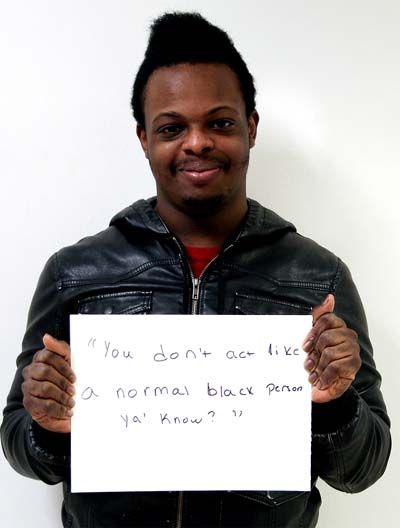
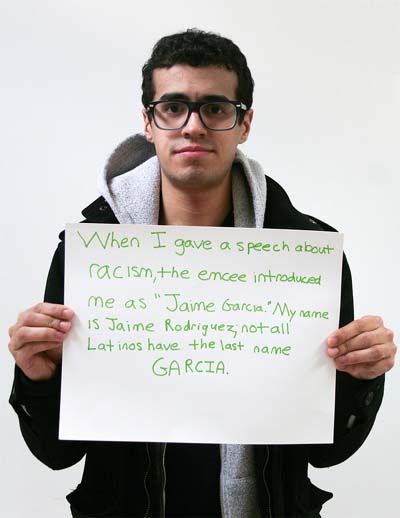
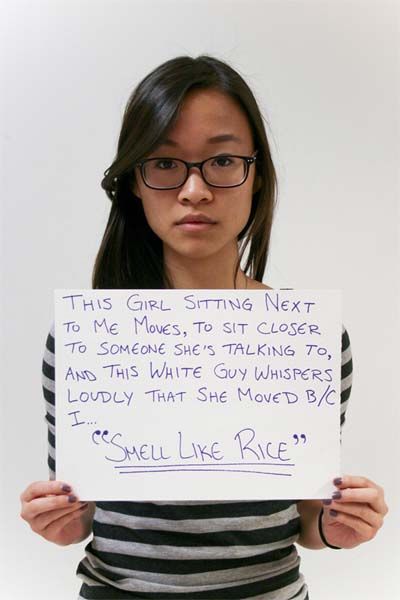
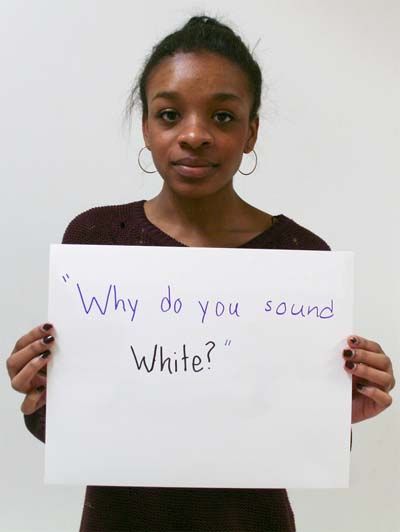
24 comments